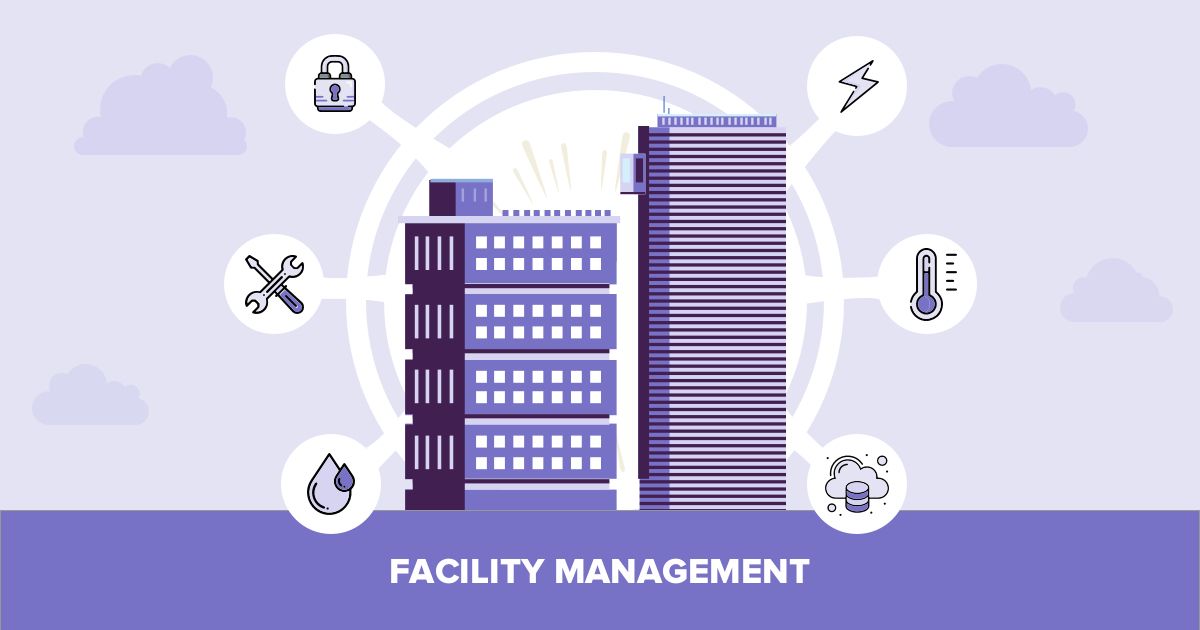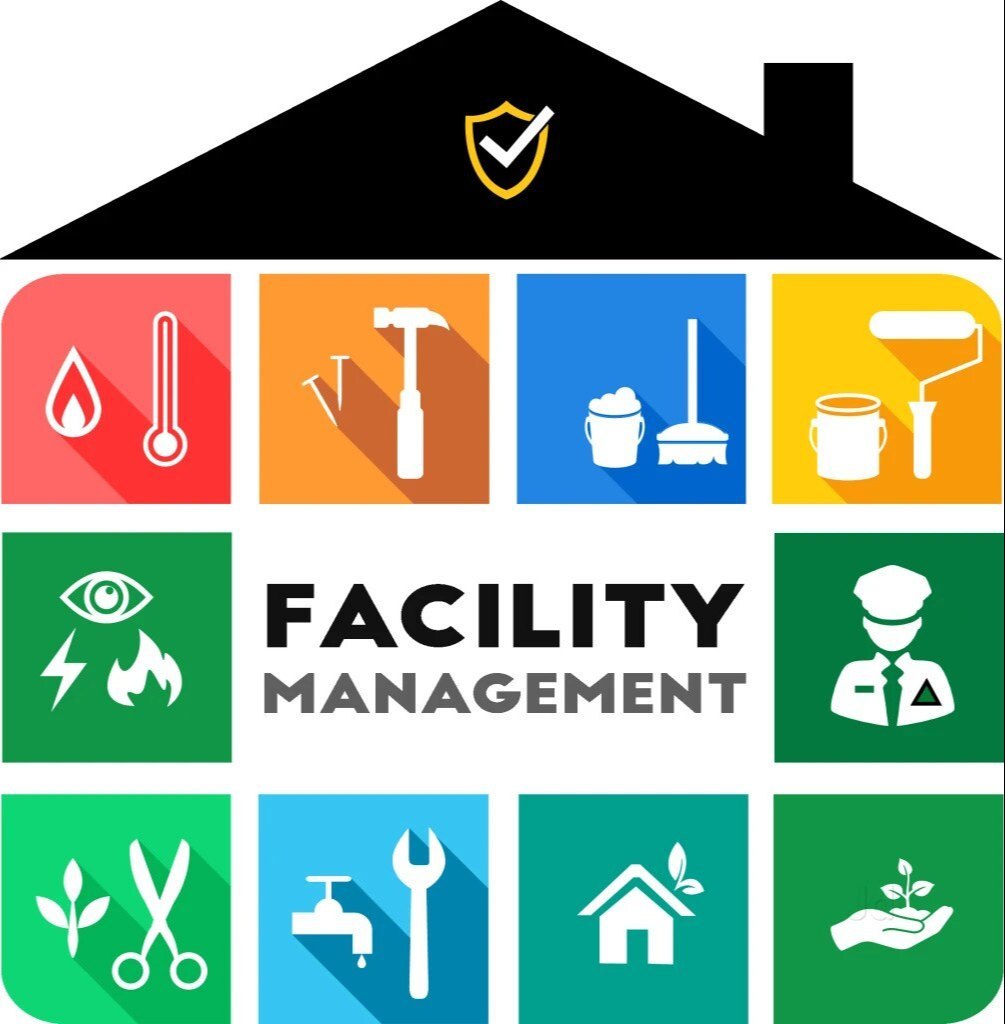Why Facility Management is Essential for Property Durability
Why Facility Management is Essential for Property Durability
Blog Article
Key Trends Shaping the Future of Center Administration in 2024
As we expect 2024, the landscape of center administration is poised for substantial change, driven by several vital fads. The assimilation of wise structure technologies and a change in the direction of data-driven decision-making assurance to boost operational performance while prioritizing sustainability in practice. Moreover, the introduction of hybrid work models is reshaping workplace environments, demanding ingenious design solutions that satisfy developing employee needs. Amid these adjustments, the concentrate on passenger wellness proceeds to gain traction, highlighting the value of a healthy and balanced workplace. Just how these trends will materialize in practice stays a crucial question for sector specialists.
Smart Building Technologies
Smart building technologies encompass a large range of systems, consisting of intelligent lighting, cooling and heating controls, and protection systems. By incorporating these systems, facility managers can keep an eye on and adjust parameters in real-time, resulting in substantial reductions in power waste and operational costs. Smart sensing units can discover tenancy degrees and change lighting and temperature appropriately, guaranteeing that energy is only made use of when necessary.
In addition, these modern technologies promote enhanced information collection, permitting organizations to track use patterns and identify possibilities for further enhancements. The implementation of clever building modern technologies not just adds to sustainability goals but additionally creates healthier workplace that can enhance employee efficiency and complete satisfaction.
As we move right into 2024, the adoption of clever building modern technologies will likely speed up, reflecting a more comprehensive shift in the direction of even more smart, responsive, and lasting center administration methods.
Data-Driven Decision Making
Progressively, organizations are leveraging data-driven decision making to enhance center monitoring practices. By harnessing data analytics, center supervisors can obtain workable insights that considerably boost functional efficiency and resource allotment. The integration of sophisticated modern technologies, such as IoT sensors and real-time tracking systems, allows the collection of huge amounts of data on building efficiency, occupancy prices, and power usage.
This riches of information allows center supervisors to determine fads, predict upkeep requirements, and proactively address issues before they rise. Anticipating analytics can forecast equipment failings, lowering downtime and repair work costs. Furthermore, data visualization tools help with far better communication among stakeholders, ensuring that informed decisions are made collaboratively.
Furthermore, data-driven techniques boost calculated planning by enabling center managers to evaluate the effectiveness of existing methods and make educated options pertaining to investments in technology or framework. As organizations increasingly prioritize operational quality, data-driven decision production is poised to end up being a keystone of successful facility monitoring strategies in 2024 and past. Ultimately, the capability to leverage data properly will equip organizations to create much more effective, effective, and resistant centers.
Sustainability and Green Practices
The focus on data-driven decision making normally aligns with the expanding focus on sustainability and environment-friendly techniques within facility monitoring. As organizations significantly focus on environmental duty, facility supervisors are leveraging analytics to optimize resource use, lower waste, and decrease carbon footprints. This tactical technique enables the integration of energy-efficient systems, such as LED illumination, wise cooling and heating controls, and renewable resource resources into center procedures.
In addition, the execution of sustainable techniques prolongs past energy consumption. Center managers are embracing eco-friendly products and promoting reusing campaigns to produce a circular economy within their centers. this post This not just improves the ecological profile of the organization but likewise fosters a society of sustainability among employees.
Compliance with ecological laws is another crucial aspect driving the fostering of green practices. By utilizing information analytics, facility supervisors can keep track of compliance metrics and determine areas for enhancement, ensuring adherence to international and neighborhood sustainability standards.
Hybrid Job Models
A internet significant change in the direction of crossbreed work models is improving the landscape of facility management in 2024. This standard combines remote and in-office job, demanding a reevaluation of space utilization, resource appropriation, and staff member interaction approaches. Organizations are progressively acknowledging the importance of adaptable offices that accommodate varied requirements and choices.
Facility managers need to adapt by carrying out versatile workplace styles that support collective initiatives while offering locations for focused job. This consists of the integration of innovation to promote smooth interaction and collaboration amongst in-office and remote workers. Smart building solutions, equipped with analytics and sensors, allow for real-time monitoring of space usage, making it possible for companies to optimize their atmospheres efficiently.
In addition, crossbreed work versions highlight the demand for effective facility management that focuses on worker experience. In significance, the crossbreed job design is reinventing center monitoring, motivating a proactive strategy to satisfy the progressing needs of the workforce.
Boosted Resident Wellness
As organizations embrace hybrid work designs, an increased emphasis on owner wellness is becoming integral to facility management techniques. Facility Management. This change identifies that a completely satisfied and healthy workforce straight affects performance and retention prices. Center managers are currently focusing on atmospheres that advertise physical and mental wellness, integrating aspects such as all-natural illumination, biophilic design, and obtainable wellness resources

Technology plays an important duty in this evolution. Smart structure systems can monitor ecological factors and change setups in real-time, ensuring ideal convenience degrees - Facility Management. Feedback devices, such as tenancy sensing units and worker studies, permit facility managers to continuously fine-tune wellness initiatives based on resident requirements.

Verdict
In 2024, the future of center management will visit the website certainly be substantially affected by the combination of smart building innovations and data-driven decision-making, cultivating improved functional efficiency. These patterns jointly highlight the evolving landscape of facility administration in feedback to contemporary challenges and opportunities.
Facility managers are adopting environmentally friendly products and advertising recycling campaigns to develop a round economic climate within their centers.A substantial change in the direction of hybrid job models is reshaping the landscape of center administration in 2024.Moreover, hybrid work designs stress the demand for efficient center administration that prioritizes worker experience.As companies embrace hybrid work designs, an enhanced focus on owner health is coming to be indispensable to facility management methods.In 2024, the future of facility management will certainly be considerably influenced by the assimilation of wise building innovations and data-driven decision-making, fostering boosted functional efficiency.
Report this page